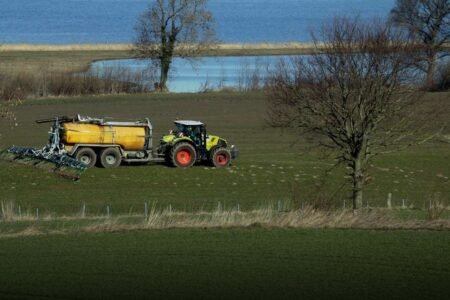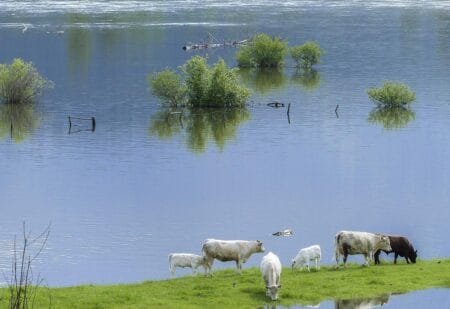Today, the European Parliament voted in plenary on a draft report outlining its position on the upcoming EU Water Resilience Strategy.

Conservative and far-right members further weakened the text beyond the rollbacks introduced by their counterparts at the ENVI Committee last month, by significantly downplaying the role of Nature-based Solutions (NbS) in addressing the EU’s water crisis and diluting measures to tackle water pollution. This move sets a worrying precedent ahead of the launch of the Water Resilience Strategy, scheduled for 4 June.
Commenting on the vote, members of the Living Rivers Europe NGO coalition said: “This vote has revealed a serious lack of strategic vision for building water resilience. We cannot tackle a continent increasingly depleted of clean water or repair broken water cycles without working with nature. Nature-based solutions, such as restoring wetlands and removing barriers obstructing rivers, are far more cost-effective, straightforward, and environmentally sustainable than grey infrastructure and techno-fixes. Around 90% of extreme weather events that disrupt people’s lives are water-related, yet here we are with conservative and far-right MEPs denying Europe the means it needs to face inevitable floods and droughts.”
Far-right and conservative MEPs continued their attacks on the Water Framework Directive (WFD), calling for more exemptions and weakening of environmental measures – fortunately, they failed. These attempts were clearly intended to exempt Member States from their legal obligations.
In addition, the Extended Producer Responsibility (EPR) scheme under the Urban Wastewater Treatment Directive, which requires pharmaceutical and cosmetics industries to cover their pollution costs, was challenged. MEPs alluded to a potential shortage of medicines resulting from the financial impact of the EPR on the sector – which accounts for less than 1% of the sector’s total annual benefits, according to a European Commission’s impact assessment.
Despite widespread concerns over the state of European waters, MEPs in the ENVI Committee weakened their support for a full phase-out of PFAS last month. Unfortunately, the European Parliament has turned a deaf ear to civil society and scientists, and has now endorsed this rollback. This vote takes place as EU institutions continue trilogue negotiations to update EU water pollution standards.
“Pretty words on water resilience are nice to have, but how they vote reflects MEPs’ true colors. The European Parliament now needs to stand by its word and resist attempts to weaken the Water Framework Directive and its implementation during the ongoing trilogues on updated EU water pollution standards. If the Parliament greenlights Member States’ demands to not bother protecting water, including from very dangerous substances like PFAS, we will simply fail to build water resilience in Europe,”added the coalition.
On a more positive note, this report marks a first step towards a truly comprehensive source-to-sea approach to water management in the EU – one that accounts for the impacts of human activities at every stage of the water cycle, not just on land. “The threats we face, from chemical pollution to nutrient run-off and plastic waste, are undeniable. What freshwater and marine policies need is common ground – in planning, in objectives, and in implementation – so protection flows through the entire water cycle,” said Helena Rodrigues, Ocean Policy Officer at the WWF European Policy Office. “With the UN Decade of Ocean Science at its halfway point, and the UN Ocean Conference in Nice just a month away, the European Commission must build on the report’s recommendations and make an unequivocal commitment: to strengthen marine protection, scale up funding for coastal and ocean restoration, and support the transition to low-impact human activities in the upcoming Oceans Pact and Water Resilience Strategy.”
This final report is intended to inform the European Commission’s Water Resilience Strategy, expected in early June. The Living Rivers Europe coalition urges the European Commission to disregard the European Parliament’s “leaking” vision and put nature and people at its centre through the strict enforcement of existing water and environmental laws. Europe’s water systems are already breaking under pressure: the upcoming strategy must demonstrate the political courage that the Parliament’s report has so clearly lacked.








